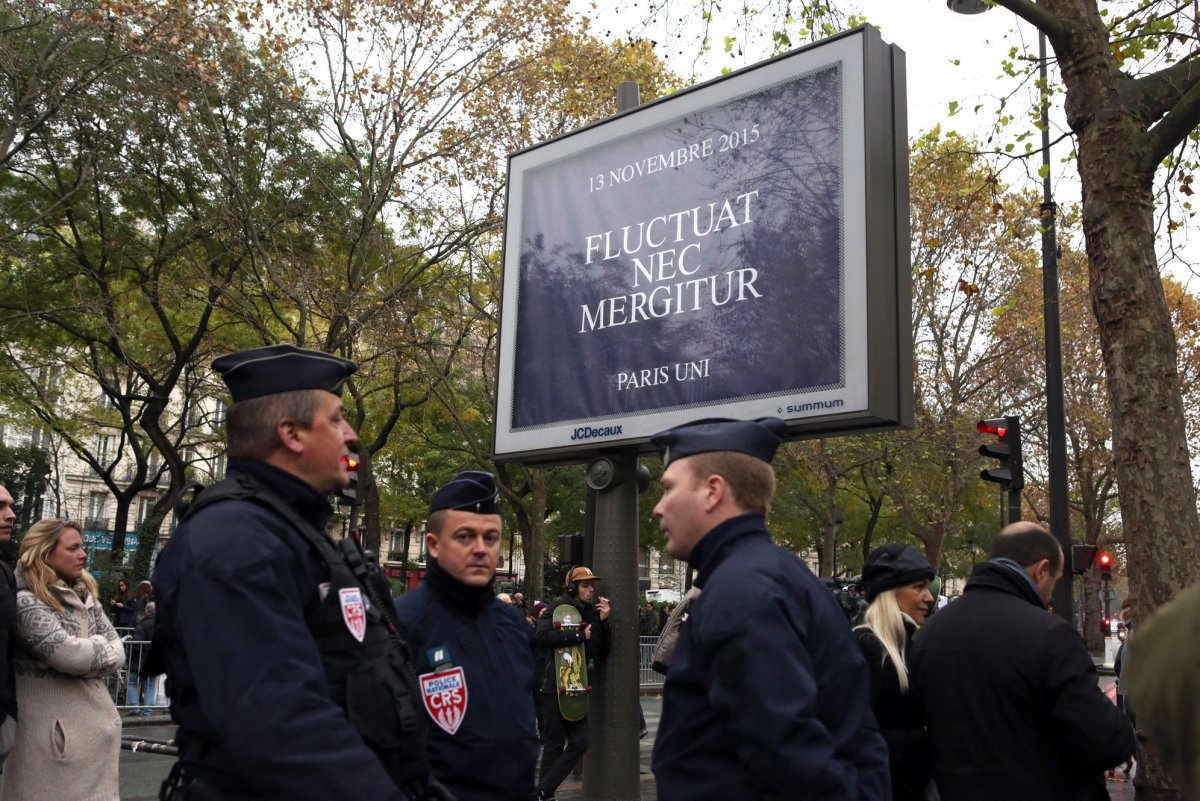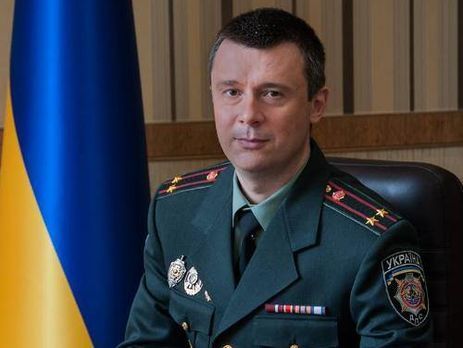 January 12, 2017
January 12, 2017
— The police officer who shot and killed an unarmed black man just outside of San Diego last year responded to the situation in a justified manner and will not face criminal charges, authorities announced Wednesday.
The incident is just one of several that have sparked outrage and debate around the country. While activists have decried what they see as a pattern of race-based police brutality, many grand juries have failed to bring charges against the officers in question, leading some to wonder if the standards of scrutiny for officers is too high.
Wednesday’s ruling stemmed from a September shooting in the suburb of El Cajon. Alfred Olango’s sister had called police, explaining that her brother, a Uganda refugee, “was not acting like himself.” When officers located him at a strip mall, Mr. Olango pulled an item from his pocket and pointed it at police, leading one to use a Taser and another to fire his gun, fatally wounding Olango.
Police later determined that the item was an e-cigarette, not a weapon.
« The law recognizes police officers are often forced to make split-second decisions in circumstances that are tense, uncertain and rapidly evolving, » San Diego County District Attorney Bonnie Dumanis said in an announcement of the ruling. « As prosecutors, we have an ethical duty to follow the law and only charge individuals when we have proof beyond a reasonable doubt. The only reasonable conclusion was the officer’s actions were justified. »
But many disagree, noting that the circumstances surrounding Olango’s death are different from some of the other recent cases that have made national headlines. Because officers were called to assist Olango and warned that he may be mentally ill, they should have reacted to his odd behavior with greater nuance, his family argues.
« I just called for help, and you came and killed him, » his sister, Lucy Olango said at the time, according to the Associated Press.
Bringing charges against police officers has proved difficult in a slew of high-profile cases over the past few years. A grand jury chose not to indict Darren Wilson, the officer who fatally shot Michael Brown in Ferguson, Mo., and another failed to come to a consensus around the actions of Michael Slager, who shot an unarmed man in the back five times during a traffic stop in North Charleston, S. C., during proceedings last month, resulting in a mistrial.
The trend has led many to worry if the scrutiny standard necessary to indict officers is too high, which could lead to a long-term lack of accountability for police brutality and poor practices.
« It’s seriously hard to convict a police officer of a murder charge , it really is, » Charles Wilson, chairman of the National Association of Black Law Enforcement Officers who formerly served as a cop in Rhode Island and Ohio, previously told The Christian Science Monitor. « No matter what people think about police officers, in these kinds of situations they are still very willing to give the police officer the benefit of the doubt. »
Olango’s family has filed a wrongful death suit against the city, alleging that officers were negligent and used aggressive tactics to confront him.
« The lawsuit is demanding that officers follow the rules so the rest of us can have faith that we can call 911 and a loved one won’t get shot and killed, » attorney Dan Gilleon told the San Diego Union-Tribune.
© Source: http://www.csmonitor.com/USA/Justice/2017/0112/San-Diego-police-shooting-deemed-justified-Why
All rights are reserved and belongs to a source media.
 Информация, ранее распространенная рядом СМИ о нападении бойцов батальона « Торнадо » на сотрудников Лукьяновского СИЗО, является неправдивой.
Информация, ранее распространенная рядом СМИ о нападении бойцов батальона « Торнадо » на сотрудников Лукьяновского СИЗО, является неправдивой. 

 It’s good to be home. My fellow Americans, Michelle and I have been so touched by all the well-wishes we’ve received over the past few weeks. But tonight it’s my turn to say thanks.
It’s good to be home. My fellow Americans, Michelle and I have been so touched by all the well-wishes we’ve received over the past few weeks. But tonight it’s my turn to say thanks. 
 BRUSSELS, Jan. 12 (UPI) — Two more people were charged in the 2015 terrorist attacks in Paris, Belgium’s federal prosecutor announced Thursday.
BRUSSELS, Jan. 12 (UPI) — Two more people were charged in the 2015 terrorist attacks in Paris, Belgium’s federal prosecutor announced Thursday. 
 January 12, 2017
January 12, 2017
 KABUL, Afghanistan , Jan. 12 (UPI) — An investigation led by NATO commanders cleared U. S. soldiers of any wrongdoing in a firefight with the Taliban in Afghanistan in November that led to 33 civilian deaths.
KABUL, Afghanistan , Jan. 12 (UPI) — An investigation led by NATO commanders cleared U. S. soldiers of any wrongdoing in a firefight with the Taliban in Afghanistan in November that led to 33 civilian deaths. 
 The United States on Thursday charged Fiat Chrysler with using software on its trucks to evade emissions standards on about 104,000 vehicles.
The United States on Thursday charged Fiat Chrysler with using software on its trucks to evade emissions standards on about 104,000 vehicles. 
 Бойцы расформированной спецроты « Торнадо » не нападали на охрану Лукьяновского СИЗО. Об этом заявил заместитель министра юстиции Украины Денис Чернышев в ходе брифинга, передает корреспондент издания « ГОРДОН ».
Бойцы расформированной спецроты « Торнадо » не нападали на охрану Лукьяновского СИЗО. Об этом заявил заместитель министра юстиции Украины Денис Чернышев в ходе брифинга, передает корреспондент издания « ГОРДОН ». 
 « Сегодня утром ФСБ задержало активиста УКЦ Андрея Виноградова », – написал он.
« Сегодня утром ФСБ задержало активиста УКЦ Андрея Виноградова », – написал он. 
 Нападение бойцов расформированной спецроты « Торнадо » на охрану Лукьяновского СИЗО является прямым следствием бездействия прокуратуры и Министерства юстиции, заявил бывший глава Государственной пенитенциарной службы Украины Сергей Старенький на своей странице в Facebook, комментируя инцидент, произошедший в СИЗО вечером 11 января.
Нападение бойцов расформированной спецроты « Торнадо » на охрану Лукьяновского СИЗО является прямым следствием бездействия прокуратуры и Министерства юстиции, заявил бывший глава Государственной пенитенциарной службы Украины Сергей Старенький на своей странице в Facebook, комментируя инцидент, произошедший в СИЗО вечером 11 января. 
 Государственная служба Украины по лекарственным средствам и контролю за наркотиками после получения информации от правоохранительных органов об обнаружении в обороте незарегистрированной в стране формы препарата «Dona» (1500 мг в блистерах 20 таблеток) производства «Rottarpharm, S.p. A. Olaszorszag», Италия. Вероятно, данный препарат является фальсификатом.
Государственная служба Украины по лекарственным средствам и контролю за наркотиками после получения информации от правоохранительных органов об обнаружении в обороте незарегистрированной в стране формы препарата «Dona» (1500 мг в блистерах 20 таблеток) производства «Rottarpharm, S.p. A. Olaszorszag», Италия. Вероятно, данный препарат является фальсификатом. 

